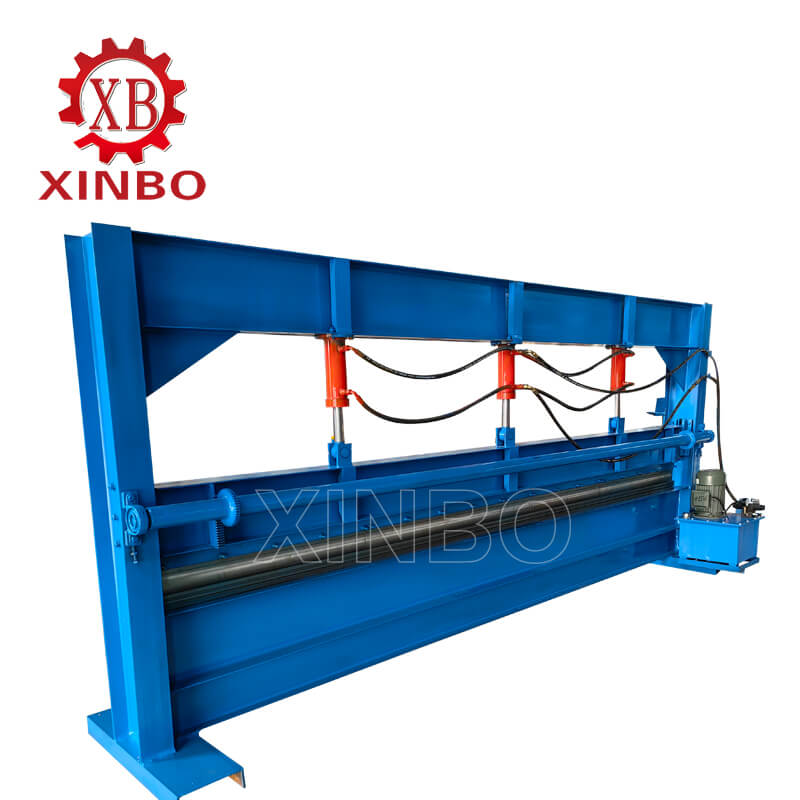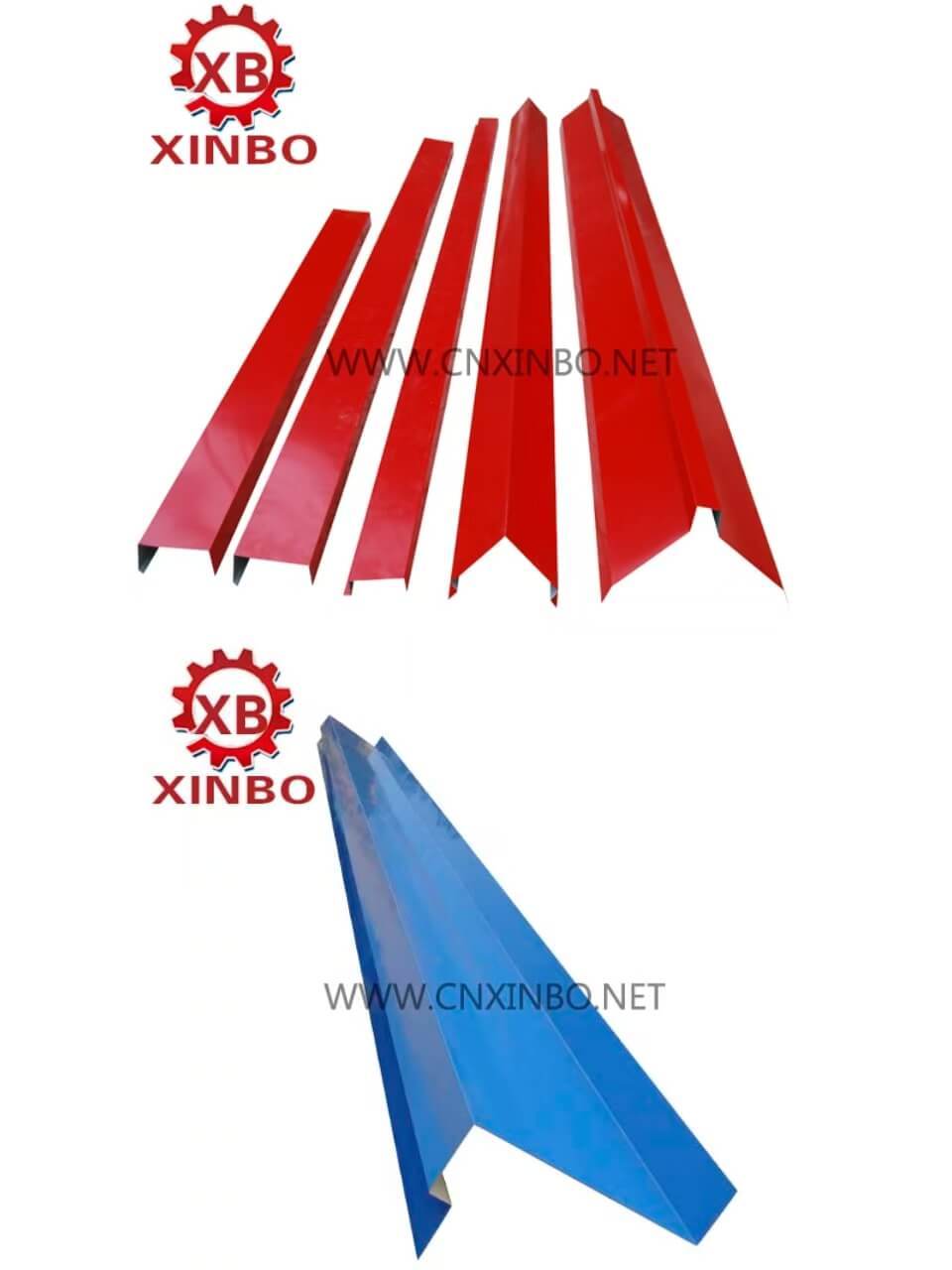Good quality
XinBo machine making CO. LTD is a professional manufacturer and exporter in roll forming machine,
VIEW MORE→Hydraulic bending machines play a vital role in various industries by facilitating the bending of materials with precision and efficiency. These machines harness the power of hydraulic systems to perform bending operations, making them indispensable tools in manufacturing and fabrication processes. As businesses strive for higher productivity and precision in their operations, understanding the functionality, benefits, and applications of hydraulic bending machines becomes essential.
A hydraulic bending machine is a type of machinery utilized for bending metal and other materials using hydraulic power. The design consists of a reinforced frame that houses hydraulic cylinders, which apply force to bend materials into desired shapes and angles. These machines come in various sizes and specifications to cater to different bending needs, from small workshops to large-scale manufacturing facilities. The hydraulic system allows for a considerable amount of force to be exerted, facilitating the bending process without compromising the integrity of the material.
Hydraulic bending machines operate based on Pascal’s Law, which states that pressure applied to a confined fluid is transmitted undiminished throughout the fluid. The operator inputs the bending specifications, and the hydraulic system generates the necessary pressure to bend the material. The machine clamps the material in place and then applies force through a hydraulic ram. As the ram moves, it bends the material to the specified angle and shape. This automated process not only enhances accuracy but also minimizes the risk of error, making hydraulic bending machines essential for precise bending tasks.
One of the standout features of hydraulic bending machines is their ability to deliver exceptional precision and accuracy in bending operations. The automated controls allow for finely-tuned adjustments, ensuring that materials are bent to exact specifications without deviation. This high level of accuracy reduces material wastage and enhances the overall quality of the finished product. Industries rely on these machines to create components that meet stringent tolerance requirements.
Hydraulic bending machines are renowned for their versatility, enabling them to work with a wide array of materials such as steel, aluminum, and plastic. They can handle various shapes and sizes, making them suitable for different manufacturing processes. This versatility allows companies to utilize a single machine for multiple tasks, reducing the need for multiple machines and conserving valuable production space. From simple bends to complex geometric shapes, hydraulic bending machines are capable of meeting diverse manufacturing requirements.
The implementation of hydraulic bending machines significantly enhances efficiency and productivity within manufacturing operations. The automation of the bending process reduces manual labor and minimizes the time required for setup and operation. In turn, this enables companies to complete projects more quickly and with greater consistency. As production rates increase, businesses can meet higher demands and improve throughput, which directly impacts their profitability and competitive edge in the market.
Manufacturers prioritize safety, and hydraulic bending machines come equipped with various safety features to protect operators during use. These machines often include emergency stop buttons, safety guards, and programmable logic controls that ensure safe operation. The user-friendly interfaces make it easy for operators to adjust settings and monitor the bending process, reducing the likelihood of accidents or errors. By investing in hydraulic bending machines, companies can cultivate a safer working environment while maximizing efficiency.

In the automotive industry, hydraulic bending machines play a crucial role in the manufacturing of various components. From structural frames to brackets and exhaust systems, these machines enable the precise bending of metal parts that fit flawlessly into automotive designs. The capability to produce components with high accuracy ensures that vehicles meet safety standards and performance requirements. Additionally, the ability to handle different materials allows manufacturers to create lightweight parts that enhance fuel efficiency.
The construction sector greatly benefits from the use of hydraulic bending machines in structural fabrication. These machines are essential for bending rebar, steel beams, and plates used in building frameworks. By facilitating the precise bending of materials, hydraulic machines contribute to the structural integrity and durability of constructions. Their ability to produce consistent bends streamlines the construction process, enabling contractors to adhere to project timelines and budgets efficiently.
Hydraulic bending machines are instrumental in the shipbuilding industry, especially for hull assembly and repairs. The bending of large steel plates and shapes is necessary for creating robust hulls that withstand harsh marine environments. These machines provide the required force to bend heavy materials accurately, ensuring that ship components fit together seamlessly. Moreover, they facilitate repairs by allowing for quick and precise bending of damaged sections, minimizing downtime for vessels.
In aerospace engineering, hydraulic bending machines are essential for forming aircraft components with exacting standards. The aerospace industry demands high precision due to safety regulations, and hydraulic bending machines are capable of producing complex parts such as wing structures, fuselage components, and landing gear elements with utmost accuracy. The ability to work with lightweight materials and complex geometries makes these machines invaluable in manufacturing processes that prioritize both performance and safety.

Xinbo is a renowned manufacturer specializing in hydraulic bending machines, establishing itself as a leader in the industry through a commitment to quality and innovation. With a strong emphasis on research and development, Xinbo continually enhances its product offerings to meet the evolving needs of various sectors. Their machines are designed to provide exceptional performance, durability, and user-friendliness. Through strategic partnerships and collaborations with industry leaders, Xinbo has secured its position as a preferred supplier for hydraulic bending machines worldwide.
Xinbo offers a range of entry-level hydraulic bending machines tailored for small businesses and workshops. These models are designed to provide reliable performance without compromising on quality or features. Equipped with user-friendly controls, entry-level machines are ideal for operators who require straightforward bending tasks and wish to keep costs manageable. Despite being entry-level, they incorporate advanced hydraulic technology to ensure efficient and accurate bending, making them an excellent choice for start-ups and smaller operations.
In addition to entry-level options, Xinbo’s product range includes advanced hydraulic bending machines for specialized applications. These models are equipped with cutting-edge technology, allowing for complex bends and customized profiles needed in industries such as aerospace and automotive. They feature programmable interfaces, enabling precise control over bending parameters and the ability to create intricate designs. Moreover, advanced models often include enhanced safety features and greater flexibility in terms of material thickness and type, making them indispensable for high-volume production environments.
Regular maintenance is crucial for ensuring the longevity and optimal performance of hydraulic bending machines. Operators should perform routine checks on hydraulic fluid levels, ensuring that the fluid remains clean and within the manufacturer’s recommended levels. Inspecting hoses and fittings for any signs of wear or leakage can prevent costly repairs and downtime. Additionally, scheduled maintenance, including lubrication of moving parts and cleaning of components, will enhance the machine’s functionality and prevent unexpected failures during production.
Even with proper maintenance, hydraulic bending machines may occasionally encounter issues that require troubleshooting. Common problems include fluctuations in hydraulic pressure, which may arise from air in the system or low fluid levels. Operators should check for any blockages in the hydraulic lines or filters that could affect performance. If the machine is not achieving the desired bends, it may be necessary to recalibrate the controls or inspect the bending tools for wear. Maintaining a thorough understanding of potential issues can help operators address problems quickly, thus minimizing downtime and maintaining productivity.

XinBo machine making CO. LTD is a professional manufacturer and exporter in roll forming machine,
VIEW MORE→

